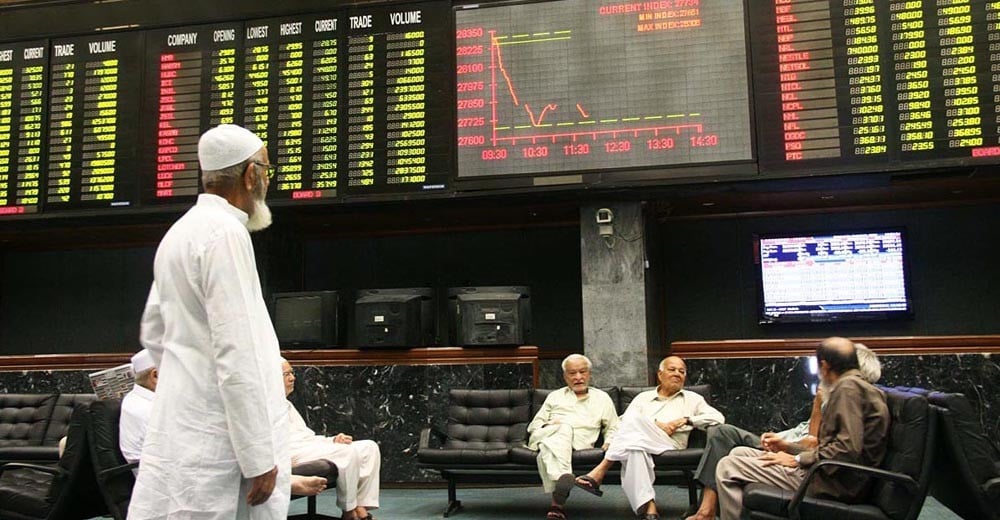
Improved security and end to energy crisis must top the government’s agenda to lure foreign investors

Resilience that Pakistan’s economy exhibited to survive recent local as well as international shocks still has the potential to lure both foreign and local investors for long-term projects despite deterrents ranging from energy shortage to security risks.
Former Chairman Securities and Exchange Commission of Pakistan, a veteran of financial and corporate profession, Khalid Mirza once answered a question about attraction in Islamic mode of investment called Modaraba by saying "greater risk always carries a promise of greater return. Apart from religious side of it, profit and loss sharing deal would have no cap on return, at the same time, when it threatens with the open ended risk factor," he had explained.
The proposition of greater return for greater risk still holds valid for investors that want to invest in Pakistan during comparatively tough times for the country’s economy. Issues of law and order and energy shortage are lingering on. And in the highly competitive world of post-globalization era of information technology revolution, the challenge of shortage and that of energy could offer an equally bigger opportunity.
In addition to higher return corresponding to the amount of risk, Pakistan was offering 100 per cent repatriation of the profit, said Chairman Board of Investment Miftah Ismail. He told TNS that the present government was up on an aggressive marketing agenda to attract foreign investors and the expatriate Pakistanis. Disclosing his government’s upfront plans, he said he was heading to Germany where Prime Minister Nawaz Sharif was also scheduled to address an investment conference.
Looking for investment in Pakistan, he said, he would be in London next week, followed by a trip to Moscow. "Next month," he said, "Finance Minister Ishaq Dar would join me to Japan. "This all," he said, "should be sufficient to denounce the impression that the present government was heading to overdependence on China.
The chief investment fetcher was of the view that the advantages of the Chinese investment should not be undermined, notwithstanding the apprehensions of being dependent on just one country in the age of globalisation. Agreeing to the opinion that Pakistan should draw advantage of the increasing wages in China, the BoI chairman said that installations of only a few Chinese companies’ factories manufacturing American and European brands would have a significantly positive impact on Pakistani exports.
Similarly, he underlined that the Chinese have one of the best competitive expertise in coal discovery and construction of coal-fired power plants. Talking about road infrastructure, he observed that only China and Turkey, both having relevant technical know-how, have so far intended to be engaged in the roads construction projects here. "We are looking for investment and technology without confining our focus on any one country or region," he maintained.
He admitted that over 25 per cent decline in net foreign direct investment inflows was alarming, but in line with his government’s policy he also blamed the recent political upheaval in forms of sit-ins by Pakistan Awami Tehreek and Tehreek-e-Insaf. But in the same breath, he acknowledged that a quarter or a year was too short a span to analyse long-term foreign or even local direct investment. Still he insisted that people hold back their payments especially when such political incidents start dampening the strength of the local currency.
According to the BoI chairman main deterrent to investors, foreign and local alike, were the shortage of energy either gas or electricity. "Not only Chinese manufacturers of foreign brands were eager to install factories for various inherent advantages, but investors from Europe were also mulling capitalization of GSP plus status recently awarded to Pakistan by investing here. But shortage of energy and the state of security still pose a threat to the political as well as economic stability."
Chaudhry Muhammad Riaz, a senior banker, was of the view that the government has so far maintained its focus on economic recovery and now it needs to concentrate on restoring image in the eyes of both local and foreign investors. Although the country has paid a huge price by playing frontline state’s role in the so-called war on terror, it has earned an introduction of a peace-loving and determined state across the globe. It is now up to our economic managers and marketing arms to capitalise on this opportunity and fetch foreign investment.
Abdul Waheed Jan, one of the top brokers at the Islamabad Stock Exchange, was of the view that it was a question of the capacity of the incumbent as well as previous governments that they fail to attract direct investment corresponding to the portfolio investment. "World over bourses are considered to be reflectors of economy, and the amount of foreign investment pouring in to the local stock exchanges is explicitly followed by the foreign direct investments," he observed. He said that having a life long experience in portfolio investment, it was mind boggling for him that short-term and long-term investments in Pakistan mostly move in divergent directions. For instance, he maintained, in the last quarter foreign investments in local bourses grew, enabling the indices to surge to new records as against FDI showing decline as compared to same period last year.
Bottom line remains that factors that are deterrent to the investment with energy shortages on top of them need to be done away with. All political forces must support the government in fighting the energy crisis on war footings. The political arena has already expressed national solidarity against the militancy that has helped the ongoing military operation against extremists to go successful so far.
Now a similar unity should be visible especially to the investors both local and foreign that the entire nation, irrespective of the political and social divides, is committed to fulfilling its energy requirement at the earliest. Such a resolve would itself set the direction of the nation towards energy security, which is inevitable not only for investment but also for overall economic development.